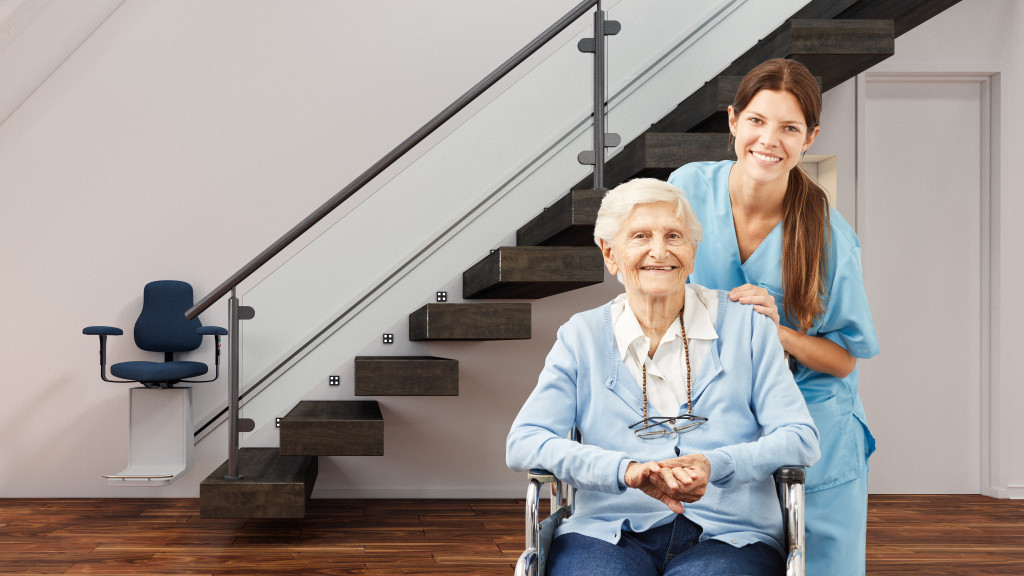Skin health can be a concern for anyone. That’s why many people frequent their trusted dermatologists to have their skin checked regularly. It’s a good practice that we see many young adults and professionals do. It’s an excellent way to protect themselves from health risks that may affect their skin.
But if there’s one age group most susceptible to skin problems, it’s the older adults. As people age, their skin becomes thin and less elastic. They’re also more likely to have issues like dry skin, rashes, and other most common skin problems related to aging. All the more why older adults need to take preventative steps to protect their skin. Here are a few things they can do:
1. Use sunscreen every day
Sunscreen should be applied every day, regardless of the weather. Sunscreen protects your skin from the sun’s harmful rays, which can cause skin cancer and other skin problems as you age. This could be one of the best preventive measures older adults can apply since it’s the easiest. Aside from SPF, sunscreen can also contain other ingredients such as antioxidants, which help protect your skin from other environmental factors. Keeping your skin protected by applying sunscreen is something that everyone needs to get used to. But older adults who are more at risk of getting complications from the sun should make it a habit.
2. Always observe skin
Older adults need to keep an eye on their skin and look for any changes. This means being aware of any new moles, dark spots, or patches on the skin. If you notice anything new or strange, be sure to have it checked out by a doctor. Skin cancer is more common in older adults, so it’s vital to be proactive about checking your skin. You want to make sure if that purple spot on your chest is something that needs medical attention or could just be treated by a laser pigmentation removal procedure. Older adults would have lots of skin patches that may appear with age, and they should not be alarmed. However, any sudden changes should prompt a check-up as soon as possible.
3. Manage stress levels

Skin problems may occur if you dwell with stress. These skin problems include eczema, rosacea, and pimples. Your body releases cortisol when under stress, which can aggravate skin conditions. That’s why older adults should find ways to manage their stress levels. There are many ways to do this, such as through exercise, meditation, and yoga. If you’re constantly under a lot of stress, talk to your doctor about it. They may be able to recommend some helpful stress-relieving techniques.
4. Avoid excessive exposure to the sun
This is another key prevention measure for skin health problems in older adults. Like with sunscreen, it’s essential to avoid excessive exposure to the sun. This means staying indoors during peak hours, wearing a wide-brimmed hat and sunglasses. Sunburns are painful and can lead to more severe problems down the line. If you already have sensitive skin that’s at risk of getting sunburn, then take extra precautions. So it’s best to avoid them altogether by taking precautions when outdoors.
5. Drink plenty of water
Water is essential for the overall health of your body, including your skin. It’s true regardless of your age. But for older adults, this must be very important to remember. Drinking enough water helps keep your skin hydrated and prevents it from becoming dry and cracked. It also helps flush out toxins from the body, which can help improve skin health. So be sure to drink plenty of water every day — at least eight glasses if you can. Why this much? Mayoclinic stated that the “8 glasses of water” rule is easy to remember and a reasonable goal. If you struggle with drinking enough water, try keeping a bottle of water with you or drinking tea and coffee in moderation.
6. Eat a healthy diet
What you eat also has a direct impact on your skin health. A healthy diet is critical for keeping your skin looking its best. Fruits and vegetables should already be a staple in everyone’s diet regardless of age. You can incorporate whole grains into your meal plan too. Sweet drinks and processed foods can harm your skin and lead to wrinkles, dry skin, and acne problems. So be sure to eat a healthy, balanced diet for optimum skin health.
As we age, our skin becomes thinner and less elastic. This makes us more prone to sunburns, skin cancer, wrinkles, and dry skin. You can do many things to prevent these health risks and protect your skin. You just have to adhere to your regimen to be protected and have healthy skin.
